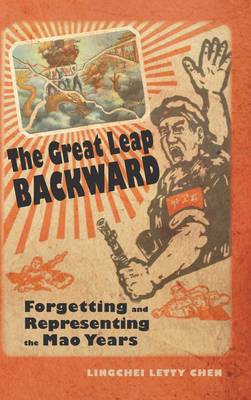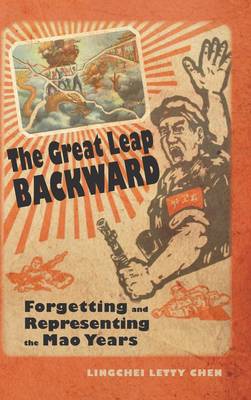
- Afhalen na 1 uur in een winkel met voorraad
- Gratis thuislevering in België vanaf € 30
- Ruim aanbod met 7 miljoen producten
- Afhalen na 1 uur in een winkel met voorraad
- Gratis thuislevering in België vanaf € 30
- Ruim aanbod met 7 miljoen producten
Omschrijving
It is now forty years after Mao Zedong's death and the end of the Cultural Revolution, and more than fifty years since the Great Leap Forward and the Great Famine. During this time, the collective memory of these events has been sanitized, reduced to a much-diluted version of what truly took place. Historical and sociological approaches cannot fully address the moral failure that allowed the atrocities of the Mao era to take place. Humanist approaches, such as literary criticism, have a central role to play in uncovering and making explicit the testimonies of both victims and perpetrators in "memory writing" in order to recover the truth of China's history.
In this unprecedented study The Great Leap Backward, inspired by Holocaust studies, memory work such as fiction, memoirs, autobiographies, and documentary films that have surfaced since Mao's death are examined to uncover the many aspects of the forces underlying remembering and forgetting. These are significant for they also embody the politics of writing and publishing traumatic historical memories in contemporary China and beyond. Beginning with a scar literature classic and ending with popular Cultural Revolution memoirs that appeared early in the twenty-first century, this study provides us with another important way through which memory studies can help us grapple with traumatic histories.
This book is the Cambria Sinophone World Series, headed by Professor Victor H. Mair (University of Pennsylvania).
Specificaties
Betrokkenen
- Auteur(s):
- Uitgeverij:
Inhoud
- Aantal bladzijden:
- 306
- Taal:
- Engels
- Reeks:
Eigenschappen
- Productcode (EAN):
- 9781604979923
- Verschijningsdatum:
- 25/03/2020
- Uitvoering:
- Hardcover
- Formaat:
- Genaaid
- Afmetingen:
- 152 mm x 229 mm
- Gewicht:
- 616 g

Alleen bij Standaard Boekhandel
Beoordelingen
We publiceren alleen reviews die voldoen aan de voorwaarden voor reviews. Bekijk onze voorwaarden voor reviews.











